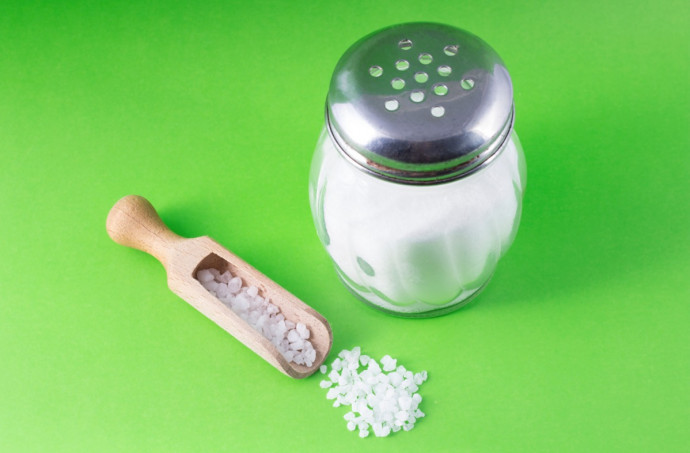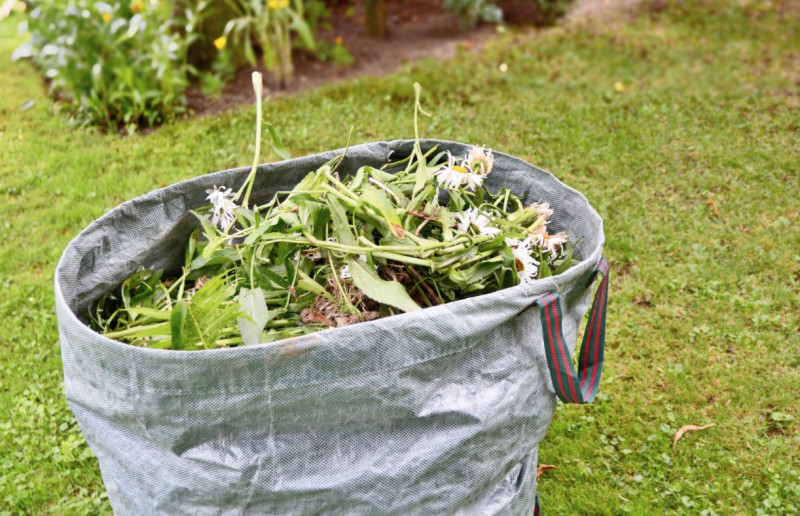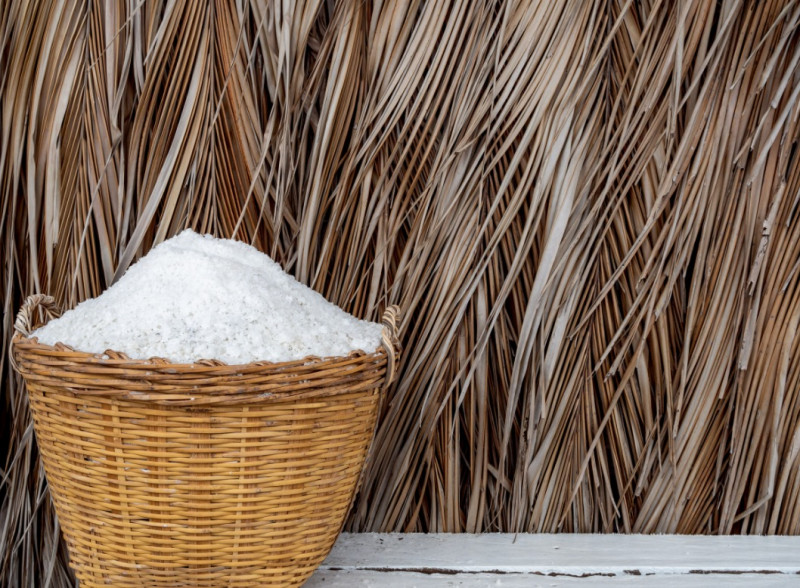Killing Weeds with Salt—a Non-Toxic Herbicide

Dealing with weeds in the garden is a task that most gardeners have come to dread. Pulling them by hand is time-consuming and repetitive, but many gardeners also want to avoid using commercially available chemical herbicides as they pose both environmental and health risks.
There are some non-toxic herbicides that can be used to effectively control weeds in the garden—namely, table salt. While no herbicide can ever be labeled as truly ‘harmless’ in the garden (their main purpose is to kill unwanted plants after all!), salt (or sodium chloride) is a natural solution that works well on pesky weeds. Discover how to use it in your garden in the most effective way.

How to Use Salt as a Herbicide
Salt is an effective non-toxic herbicide. However, not all salt is created equal when it comes to weed control. Regular iodized or non-iodized table salt must be used. Check the package to ensure you are using sodium chloride, not rock salt, or sea salt.
Salt is most effective as a herbicide when it is mixed with water. The recommended strength of the saltwater mixture depends on where you plan to apply the herbicide. If you are applying salt to weeds in a garden bed with other plants that you don’t want to kill, you should start with a weaker mixture—such as a 1:2 mixture of salt and water.
Alternatively, if you are applying the salt in an area where the long-term health of the soil is not an issue (like between patio stones, cracks in driveways, etc.) a much stronger mixture can be made such as a 2:1 or 3:1. This amount of salt will definitely affect the pH levels of the soil over time and may cause it to become sterile.
Saltwater solutions should be applied directly to the foliage of the weed. Avoid soaking the roots with the mixture to protect the surrounding soil and plants. The saltwater can be applied using a spray bottle, or it can be poured from a container. If there are other plants nearby, water them generously after applying the herbicide to the weeds to flush out any saltwater that made it into the surrounding soil.

Salt vs. Other Non-Toxic Herbicides
There are several other ‘non-toxic’ herbicides that are popular among home gardeners. Each has its own benefits and disadvantages, and no one option is a one-size-fits-all solution.
White vinegar is one option, although it has been proven over time to be ineffective on its own. However, when mixed with salt and water, vinegar controls weeds well. As with the salt and water mixture, vinegar must be applied carefully as it can change the pH balance of the soil over time—affecting the growth of future plants.
Boiling water can also be used to some degree of effectiveness. It is a great option for dealing with clusters of difficult weeds in a garden bed, as the water will have no residual effects on the soil. However, as with most other herbicides, boiling water needs to be applied to the garden very carefully so as to not damage plants that you don’t want to kill.
Surprisingly, fire is another method of ‘non-toxic’ weed control that is used by gardeners. The fire burns the emerging weeds, causing damage at a structural level. While fire control will permanently remove annual weeds, it does not kill the roots of hardier perennial weeds. Flame weeders can be purchased online or at most garden centers or nurseries.

Salt is toxic. That is why it kills weeds. You could maybe use it on your driveway, but if you use it on your garden, it does not go away. It just continues to poison your soil. Find something else/ anything else.
You lost me at «ensure you are using sodium chloride, not rock salt.»
Rock salt is sodium chloride, same as table salt. Differences are:
Table salt has smaller grains, and adds iodine (if «iodized») and an anti-clumping agent.
Rock salt is a little less pure than table salt (95-99%) but the impurities are insoluble, mostly gypsum.